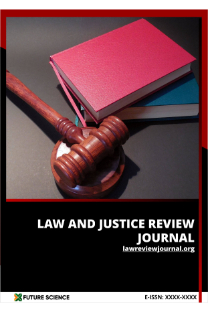THE LEGITIMACY OF PREFERENTIAL PROCUREMENT AND INTERNATIONAL COMPETITION UNDER THE TURKISH PUBLIC PROCUREMENT LAW
Kamu İhale Kanunu, ihaleyi yapan idarelere, ihaleleri uluslararası rekabete kapatma ve yerli istekliler ile yerli ürünler lehine fiyat avantajı uygulama hususlarında takdir yetkisi vermektedir. Hükümet, tercihli alım sistemini muhafaza etmekte kararlıdır ve mevcut sistemin etkinliğini artırmak için çalışmalar yapmaktadır. Bu makalenin amacı, yabancıların Türk kamu ihale piyasasına girişini engelleyen ve yerli ile yabancı girişimciler arasındaki rekabeti etkileyen Kamu İhale Kanunu hükümlerini incelemektir. Makale ayrıca, korumacılık politikalarına ve bu politikaların Avrupa Birliği üyelik müzakereleri ile Dünya Ticaret Örgütü bağlamındaki etkilerine eleştirel bir yaklaşım getirmeyi amaçlamaktadır.
The Turkish Public Procurement Law permits the contracting authorities to close the tendering procedures to international competition and allows them to grant a preference margin in favour of the national economic operators and domestic products. The Turkish Government is politically determined to maintain the preferential procurement and seeking possibilities to enhance the effectiveness of the current system. This article intends to analyse the Turkish Public Procurement Law provisions that restrict the access of foreign economic operators to the Turkish public procurement market and impede competition between the foreign and the domestic economic operators. The article also aims to provide a critique of protectionism with special reference to the impact of these policies within the context of membership negotiations with the European Union and of the World Trade Organisation.
___
Alyanak S, An overview of the legal rules governing public procurement in Turkey (2007) 2 Public Procurement Law Review 125.Alyanak S, The Public Procurement System of Turkey in Comparison to European Community Procurement Legislation (2007) 36 Public Contract Law Journal 203.
Anderson R D, The conclusion of the renegotiation of the World Trade Organization Agreement on Government Procurement: what it means for the Agreement and for the world economy (2012) 3 Public Procurement Law Review 83.
Anderson R D, Muller A C, Osei-Lah K and Pelletier P, Assessing the value of future accessions to the WTO Agreement on Government Procurement: some new data sources, provisional estimates, and an evaluative framework for WTO members considering accession (2012) 4 Public Procurement Law Review 113.
Arrowsmith S, The Law of Public and Utilities Procurement (London: Sweet & Maxwell, 2005).
Arrowsmith S and Anderson R D, The WTO regime on government procurement: challenge and reform (Cambridge: Cambridge University Press, 2011).
Baldwin R and Evenett S (eds), The collapse of global trade, murky protectionism, and the crisis: Recommendations for the G20 (London: Centre for Economic Policy Research, 2011).
Bovis C, The liberalisation of public procurement and its effects on the common market (Aldershot: Ashgate, 1998).
Bovis C, EU public procurement law (Cheltenham: Edward Elgar Pub., 2007).
Burdsal R L, An overview of Turkish public procurement law (2002) 1 Public Procurement Law Review 56.
Ercan F and Oguz S, Rescaling as a class relationship and process: The case of public procurement law in Turkey (2006) 25 Political Geography 641.
European Commission, Global Europe: Competing in the World COM(2006) 567 final.
European Commission, Evaluation Report, Impact and Effectiveness of EU Public Procurement Legislation SEC(2011) 853 final Part 1.
Joseph J S, EU Enlargement: The Challenge and Promise of Turkey in Bindi F M (ed), The foreign policy of the European Union assessing Europes role in the world (Washington, D.C.: Brookings Institution Press, 2010).
Kamu İhale Kurumu, Kamu Alımları İzleme Raporu: 2011 (Ankara: Kamu İhale Kurumu, 2012).
Kortunay A and Sezer Y, Kamu Ihale Hukukunun 63. Maddesinin AB Hukuku Perspektifinden Değerlendirilmesi (2007) 56(3) Ankara Üniversitesi Hukuk Fakültesi Dergisi 137.
Kural S and Alsac U, Public Procurement Procedures in Turkey (2006) 6 Journal of Public Procurement 100.
LaGro E and Jørgensen K E, Turkey and the European Union: prospects for a difficult encounter (Basingstoke: Palgrave Macmillan, 2007).
Mavroidis P C and Hoekman B M, The WTOs Agreement on Government Procurement: expanding disciplines, declining membership? (1995) 2 Public Procurement Law Review 63.
OECD, OECD principles for integrity in public procurement (Paris: OECD, 2009).
Schooner S L and Yukins C R, Public procurement: focus on people, value for money and systemic integrity, not protectionism in Baldwin R and Evenett S (eds), The collapse of global trade, murky protectionism, and the crisis: Recommendations for the G20 (London: Centre for Economic Policy Research, 2011).
Schrijvers A and Ridder E D, European Union accession policy in Wunderlich J-U and Bailey D J (eds), The European Union and Global Governance: A Handbook (London: Routledge, 2011).
Trepte P, Regulating Procurement: Understanding the Ends and Means of Public Procurement Regulation (New York: Oxford University Press, 2004).
Uz A, Kamu Ihale Hukuku (Ankara: Turhan Kitabevi, 2005). Williams R, Access to utilities procurement markets of non-EU countries (2010) 2 Public Procurement Law Review 39.
- ISSN: 1309-9485
- Yayın Aralığı: Yılda 2 Sayı
- Başlangıç: 2010
- Yayıncı: Türkiye Adalet Akademisi
